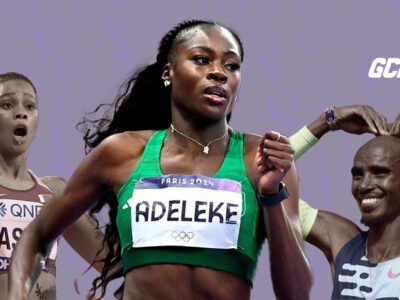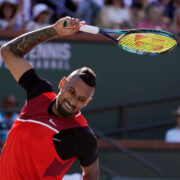Saudi Arabia has recently been a viable option for professional footballers who might want to play the beautiful sport for a hefty paycheck.
Before 2020, this would not have been an option for most professional footballers, let alone a viable one. But the situation regarding football in Saudi Arabia has changed, largely due to the nation’s ambitious football investment project.
Saudi Arabia’s investment in football is a bedrock of its broader economic diversification plan, outlined in the Vision 2030 initiative. This ambitious strategy aims to reduce the country’s reliance on oil and create a more sustainable economy.
A key component of this project involves using the Public Investment Fund (PIF), a sovereign wealth fund, to invest in various sectors, including sports and entertainment.
The PIF has acquired controlling stakes in several prominent Saudi Arabian football clubs, including Al-Hilal, Al-Nassr, Al-Ahli, and Al-Ittihad. These clubs have made significant investments to attract top-tier international football players, such as Cristiano Ronaldo, Neymar, and Karim Benzema.
The Saudi Pro League’s broadcast rights are valuable assets that can generate significant revenue. Football-related content, such as documentaries, TV shows, and merchandise, can contribute to the growth of the media and entertainment industry.
Ultimately, the strategy was brilliant, and while one could question the genuineness of the plan, the nation and the political scene could benefit from the investment, as they divest from fossil fuels.
However, the Saudis’ attempt at a hostile takeover did not start with football. The PIF has been flowing into the coffers of sporting bodies and sowing discord amongst the most reputable sporting institutions.
Let’s go through them in detail.
Racing in Saudi Arabia
Racing has been gaining momentum in Saudi Arabia, with various forms of motorsport attracting both local and international enthusiasts.
“The region is a key market for motorsport, and the demand in the Kingdom for events of this kind is growing, with research showing that 80% of Saudi fans want to see more in their country,” said Dorna CEO Carmelo Ezpeleta.
Saudi Arabia entered the Formula 1 scene for the first time in December 2021, kicking off a 15-year agreement. The inaugural race took place on December 5, 2021, at the Jeddah Corniche Circuit.
Today, the Saudi Arabian Grand Prix is a highly anticipated annual event on the Formula 1 calendar. It takes place in Jeddah, featuring a thrilling street circuit with challenging corners and high-speed straights.
Their involvement in MotoGP has steadily increased in recent years. The Kingdom’s efforts to diversify its economy and promote tourism have led to the development of new racing circuits and the hosting of major sporting events.
Saudi Arabia constructed the Al-Haram Circuit in the coastal city of Jeddah. This state-of-the-art facility, featuring challenging corners and long straights, is designed to meet the highest standards of MotoGP and Formula 1.
The country also hosts the annual Dakar Rally, as well as the all-electric Formula E and Extreme E racing events. This paves the way for different racing events to be hosted in the country and attract interested parties.
Overall, racing in Saudi Arabia is a rapidly evolving scene with significant potential. The country’s investments in infrastructure and the growing popularity of motorsport events suggest a bright future for this exciting sport.
Gaming in Saudi Arabia
The country has rapidly emerged as a key player in the global gaming and eSports industry, driven by strategic investments, government initiatives, and a vibrant gaming community.
Recognizing the gaming industry’s potential, the Saudi Vision 2030 prioritized its development. The establishment of the Saudi eSports Federation in 2017 marked a pivotal moment, providing a formal framework to cultivate talent and organize events.
This initiative was followed by the launch of Gamers Without Borders, the world’s largest charitable eSports event. This event has garnered global attention and underscored Saudi Arabia’s commitment to the gaming industry.
The Public Investment Fund (PIF), Saudi Arabia’s investment arm, has been instrumental in the country’s rise in gaming.
The PIF has made significant investments in gaming giants like Activision Blizzard, Electronic Arts, and Take-Two Interactive. These investments not only strengthen the local gaming ecosystem but also elevate Saudi Arabia’s global influence in the industry.
Furthermore, state-of-the-art gaming arenas and high-profile tournaments have transformed Saudi Arabia into a competitive gaming hub. Events like the Saudi eSports League have provided a platform for local talent to thrive and compete internationally.
This approach to gaming and eSports is marked by visionary leadership, strategic investments, and a commitment to fostering a thriving gaming culture.
These efforts have arguably made Saudi Arabia one of the best examples of how to successfully integrate gaming into a national growth strategy, setting the stage for continued innovation and leadership in the global gaming industry.
They have arguably made the best investments and improvements in gaming and eSports, with more to be expected from the sovereign nation.
Challenging the PGA
Saudi Arabia’s commitment to golf is evident in its world-class courses and prestigious tournaments. The Royal Greens Golf & Country Club and Dirab Golf & Country Club, among others, have attracted international golfers and become regional focal points.
The introduction of LIV Golf, a new professional golf league funded by Saudi Arabia’s PIF, has generated significant buzz, with aims to challenge the traditional PGA Tour.
However, LIV Golf has faced criticism and controversy, particularly regarding its source of funding and its impact on established tours.
Prominent golfers like Rory McIlroy have raised concerns about the league’s origins and potential disruption to the sport’s traditional structures.
McIlroy and others have voiced their reservations, emphasizing the need for transparency and integrity within the sport. He later softened his stance and is now considering a reconciliation between the PGA and LIV.
While Saudi Arabia has made efforts to become more open to international visitors, cultural differences or religious restrictions may still pose challenges for some golfers. These may include dress codes, social customs, or limitations on certain activities.
Despite these challenges, Saudi Arabia’s investment in golf reflects its determination to foster growth. The Kingdom’s strategic approach has created a vibrant golf scene, drawing global attention and sparking debates within the golfing community.
As Saudi Arabia continues to develop its golf infrastructure and host high-profile events, its role in shaping the future of golf in the region is set to expand further.
Taking over boxing events
Riyadh has emerged as a prominent destination for high-profile boxing events, showcasing its commitment to hosting world-class matches and attracting international attention.
One of the most notable events was the heavyweight clash between Anthony Joshua and Andy Ruiz Jr. on December 7, 2019, at the Diriyah Arena. This bout, known as the “Clash on the Dunes,” was a rematch following Ruiz’s surprising victory over Joshua earlier that year.
Joshua reclaimed the WBA (Super), IBF, WBO, and IBO heavyweight titles in a decisive victory over Ruiz Jr. The event was a significant milestone, showcasing Saudi Arabia’s capability to host top-tier boxing matches.
In addition to the Joshua vs. Ruiz rematch, Saudi Arabia has hosted other significant bouts, further solidifying its reputation in the boxing world. If there will be another golden era in boxing, Riyadh will be on the postcards.
On July 23, 2022, the country held the “Riyadh Season Fight Night,” featuring a high-profile clash between Jake Paul and Tommy Fury. This event attracted global attention, highlighting Saudi Arabia’s growing influence in the sport.
The Kingdom’s investment in boxing extends beyond hosting events; it includes the development of state-of-the-art facilities and the establishment of partnerships with major boxing organizations.
These efforts reflect Saudi Arabia’s strategic vision to become a leading destination for international boxing events and to foster the sport’s growth within the region.
By attracting high-profile fighters and organizing major bouts, Saudi Arabia has positioned itself as a central player in the boxing world.
The Newcastle FC purchase
In October 2021, Saudi Arabia’s Public Investment Fund (PIF), alongside its partners, completed the purchase of Newcastle United Football Club for approximately £300 million.
This landmark event showcased the Kingdom’s growing influence in global sports and its intent to invest in and be a key stakeholder in European football—a response to Qatar’s Paris Saint Germain.
Newcastle United, a club facing recent struggles, was seen as an opportunity for rejuvenation. The optimism surrounding the purchase was apparent, with fans and analysts alike hopeful for a new era.
The immediate impact was notable. Newcastle United experienced a significant boost, both on and off the pitch. The financial injection allowed for substantial investments in player acquisitions and infrastructure. This revitalization was crucial, as the club had been struggling near the bottom of the Premier League.
High-profile player arrivals and a renewed focus on long-term development quickly transformed Newcastle’s fortunes. The investment not only improved the squad but also enhanced the club’s facilities and global appeal.
The club enjoyed relative success, with the Magpies finishing in the top four after the conclusion of the 2022-2023 English top-flight season and securing Champions League football the following season.
Despite initial skepticism, the optimism surrounding the purchase reflects a broader vision of leveraging sports investments to drive growth and prestige on the global stage.
Splurging on young talents
Saudi Arabia has recently emerged as a significant player through its substantial investments in young football talent.
This strategy, part of a broader vision to elevate the country’s international profile, has seen a considerable arrival of emerging stars to the Saudi Pro League.
Ruben Neves, a Portuguese midfielder previously with Wolverhampton Wanderers, joined Al-Hilal. Milinkovic-Savic, a Serbian star from Lazio, and Diaby, a French winger from Bayer Leverkusen, also signed with Al-Hilal and Al-Nassr, respectively.
This trend draws comparison to the Chinese Super League’s approach a few years ago when it lured players like Oscar and Carlos Tevez with lucrative offers.
While the Chinese league’s strategy is almost failing, Saudi Arabia appears to be more focused on building a long-term infrastructure, investing in youth and development, and creating a competitive league that can sustain high-profile transfers.
Cultural differences play a significant role in these decisions. Saudi Arabia offers a high standard of living and financial security, which can be attractive to young players.
However, adapting to a new cultural environment can be challenging. Despite these challenges, the financial incentives and opportunity to play in a rapidly growing league make Saudi Arabia an appealing destination for young talents seeking to make their mark on the global stage.
Overall, Saudi Arabia’s investments in young footballers represent a strategic push to enhance its footballing reputation, drawing comparisons to previous attempts by other leagues to elevate their status through similar high-profile acquisitions.
The Saudi League as a competitor to European leagues
The Saudi Pro League has made ambitious strides to position itself as a competitor to Europe’s top football leagues, fueled by significant financial investments and high-profile signings.
Cristiano Ronaldo’s transfer to Al-Nassr in late 2022 was a landmark moment, signaling Saudi Arabia’s intent to enhance its footballing stature. Neymar’s subsequent move to Al-Hilal further amplified the league’s visibility.
However, despite these star signings, the Saudi Pro League has struggled to establish itself as a genuine competitor to Europe’s elite leagues like the Premier League or La Liga.
While the presence of these superstars has elevated the league’s profile, it remains, at best, a third-rate sideshow compared to the established European giants.
Some have described the notion that the Saudi League could rival the top European leagues as delusional.
The league’s attempts to establish itself as a global powerhouse are thwarted by factors such as inconsistent competition levels, less-developed infrastructure, and a lower overall standard of play.
Jordan Henderson’s move to Al-Ettifaq was seen as a significant statement, particularly given his status as England’s captain. But his unceremonious departure to Ajax highlights the difficulties players encounter when transitioning to a new league and the challenges of maintaining a competitive edge in a less established football environment.
Recently, there has been a noticeable retreat from the lofty claims about the Saudi League’s imminent dominance. The initial hype surrounding the league’s rapid ascent has tempered as the focus shifts towards realistic long-term goals rather than immediate dominance.
How Project Saudi has changed the game
Project Saudi has been a mixed bag for different sporting bodies and organizations.
The Good
Project Saudi has significantly enhanced the Middle East’s visibility as a destination for major sporting events.
This development surpasses the efforts of Dubai, which has struggled to establish itself as a global sports hub, and Qatar, which has faced difficulties sustaining its sports events after the 2022 World Cup.
Saudi Arabia’s substantial investments in sports infrastructure and high-profile events have positioned it as a new hub for international competitions.
For athletes nearing the end of their careers, Saudi Arabia has emerged as an attractive alternative to Major League Soccer (MLS).
With competitive salaries and high-profile teams, it offers a lucrative opportunity for both Muslim and non-Muslim players to continue their careers in a growing football market.
The leader of a French far-right party has called Karim Benzema and ‘Islamist’ after the footballer shared a photo of himself wearing traditional Saudi attire, during Saudi Arabia’s National Day. pic.twitter.com/xRPUAO0jHh
— • (@Alhamdhulillaah) September 27, 2023
The stream of funds and talent has stimulated the growth of sports within the region, fostering local talent and raising the overall standard of competition in the Middle East.
Saudi Arabia’s investment in state-of-the-art sports facilities and venues has elevated the quality of infrastructure and attracted major international events.
The Kingdom’s high-profile sports investments have brought significant global attention, positioning the country as a key player on the international sports stage.
The Bad
The Saudi sports investment strategy has faced criticism from prominent athletes. Toni Kroos and Lewis Hamilton, for example, have voiced concerns over the Spanish Football Federation hosting Super Cups in Saudi Arabia, citing the country’s human rights record.
This criticism was met with backlash from fans, demonstrating the ongoing contention surrounding Saudi Arabia’s sports initiatives.
Project Saudi has disrupted traditional sports negotiations by leveraging substantial financial investments to outbid established leagues and organizations, temporarily shifting the power balance to the Arabian Peninsula.
This aggressive approach has unsettled global sports governance, forcing bodies like FIFA, FIBA, WBA, WBO, PGA, and Formula 1 to reassess their strategies and engagements.
The significant stream of resources has created friction, highlighting the need for these organizations to adapt to the new dynamics introduced by Saudi Arabia’s sports investment strategy.
This shift has underscored the growing influence of the Arabian Peninsula in global sports, prompting a reevaluation of power structures within the industry.
The project’s goal of sportswashing — using sports investments to improve the country’s image – has been somewhat successful.
Saudi Arabia’s efforts to project a more tolerant and progressive image through sports have been effective, but this has also led to criticisms and debates about the true motivations behind these investments.
The country’s image transformation has sparked controversy, revealing the complexities of using sports as a means of political and social influence.
While Project Saudi has made significant strides in establishing the country as a major sports hub and alternative to traditional leagues, it has also faced criticism and challenges that highlight the complex interplay between sports, politics, and global perceptions.
Who wrote this?
Bienuoma Agaga-Akpati is a software engineer, writer, eSports player, and sports enthusiast, presently working with a group of ambitious Africans to transform the writing industry. With good knowledge of various sports and eSports, coupled with his keen ability for research, he loves analyzing ideas and topics that fosters the growth of the sport and eSports scenes. In his spare time, he enjoys creating content and engaging in discussions across various platforms.


















